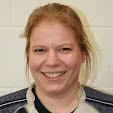The first part of any research project appears to be extensive reading on and around your topic. Or any topic which might be vaguely related or in fact interesting in some way, or indeed extensive reading around a topic which is in no way related to your doctorate but looks jolly interesting, and it was okay to spend all day reading these two novels, wasn't it?
Finding the right kind of literature is not always easy. Lots of emphasis was placed on the importance of 'systematic' searching: that is to say making a search which doesn't miss anything and which could be repeated by someone else. This is jolly fine and good and totally necessary but often the most helpful search strategy is the entirely serendipitous one of finding something useful and then chasing up every reference within it and also, for the more advanced among us, finding all articles which cite it (Social Science Citation Index is useful for this, as is the more limited Google Scholar). There should be a name for this search technique, but there isn't one. Perhaps 'spiderweb searching' or 'node-based searching'. Because while systematic searching may be designed to ensure that you don't miss anything, in fact it can have the opposite effect, if you are not prepared to follow those results up with the spiderweb technique (I'm determined to coin this term).
There are perils involved in following up these kinds of leads. Last year I found a very interesting sounding article, which purported to be nice and basic and just the kind of thing I needed, cited by its author in a later paper. Searching for it on the internet I discovered that while the article itself was not available online, another eight or so people had cited it in exactly the same way as the original author. There was just one problem. When I went to the paper based copy of the journal, hidden away in my department's library's archives, the article wasn't there. The right issue was, and the right pages, but they were occupied with an entirely different article which, while not being entirely useless per se, was of no use to my research project whatsoever. After a laborious handsearching process I found it in another issue with different page numbers. But I must be the first person to cite it who has actually read it: the others all merely took what its author had said about its content and followed his citation. Which is a big no-no as anyone involved in any kind of research should know.
Well, that was last year, and last year's problem. This year's is entirely different: most of the work which has already been done in the area which I'm researching has been done by Cambridge Assessment, the lovely group made up of the OCR awarding body and Cambridge International Examinations, and their research arm. In another life, OCR was UCLES - the University of Cambridge Local Examinations Syndicate (which strangely is the name all their money remains in) - and in that guise produced a report for the Qualifications and Curriculum Authority on the reliability of marking in Key Stage 3 tests, in the course of which they did some experiments on the use of annotation. This report is cited over and over again by Cambridge Assessment people working in my field, and they presumably have copies of it kicking about in filing cabinets all over the place. If it was produced nowadays it would be bunged straight on the internet, but it's a few years old and it wasn't. And there are no copies to be found anywhere. Not in the copyright libraries, not on any catalogues, not on the internet, nowhere. Which leaves me in the not so comfortable position of wanting to cite a study which I can't actually lay my hands on... hypocrite? Moi?
I guess I will have to resort to something else which has been muttered about in the last couple of weeks (mostly by over-confident North American Continent students) which is emailing the people who wrote the articles I'm reading. I mean, presumably they had their hands on it? In fact, tomorrow I will be at Cambridge Assessment at a seminar on Equating (with the worrying instruction of 'bring your calculator'), so perhaps I can use my cover as mild-mannered DPhil student to do an Alias and search the filing cabinets while wearing impossibly tight clothes, stupidly high heels and an implausibly coloured wig. Ah well, a girl can dream.
Wednesday, 5 November 2008
Finding the literature - never mind reviewing it
Subscribe to:
Post Comments (Atom)




No comments:
Post a Comment